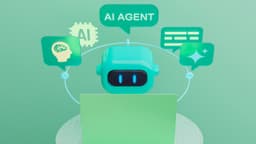The Impact of AI on the Job Market
AI is significantly affecting various industries, especially the job market. The advancements in AI technology are changing the way we work, the skills needed, and the types of jobs available. This article examines AI's impact on the job market, highlighting both challenges and opportunities.
The Rise of Automation
AI is driving the rise of automation across many sectors. AI-powered systems can perform tasks that traditionally required human intervention. This has raised concerns about potential job losses. Reports indicate that automation could displace millions of jobs in the near future.
Jobs that involve routine, repetitive tasks are more susceptible to automation. Positions such as assembly line workers, data entry operators, and customer service representatives are at a higher risk. While some jobs may disappear, AI also creates new employment opportunities.
The Shift in Skill Requirements
With AI taking over repetitive tasks, there is a growing demand for skills that enhance AI technology. Jobs requiring critical thinking, creativity, problem-solving, and emotional intelligence are less likely to be automated. AI is improving human capabilities in various fields, which boosts productivity and efficiency.
Individuals must adapt and gain new skills to remain relevant in the job market. Skills in working alongside AI and utilizing its capabilities will be increasingly valuable. Roles such as data scientists and AI engineers will see high demand.
Job Displacement vs. Job Creation
Automation may lead to job displacement, but it also generates new job opportunities. Advancements in technology create roles that support and maintain AI systems, such as AI trainers, data analysts, and ethical AI specialists. The need for these specialized positions is expected to grow in the coming years.
AI also fosters innovation and the development of new industries. For example, autonomous vehicles create jobs for software developers and safety specialists. In healthcare, AI aids in early disease detection, leading to new roles for medical researchers and healthcare consultants.
The Importance of Lifelong Learning
The rapid pace of technological change makes continuous learning and upskilling essential. Lifelong learning is becoming increasingly important. Individuals should adopt a growth mindset and actively seek opportunities to learn new skills.
With technology advancements, learning has become more accessible. Numerous online platforms offer courses and certifications in AI-related fields. Governments, educational institutions, and businesses should invest in reskilling and upskilling programs to help individuals navigate the evolving job landscape.
Ethical and Social Considerations
The integration of AI into the workplace raises ethical and social questions. Issues such as privacy, bias, fairness, and accountability need to be addressed to ensure AI benefits society. Establishing ethical frameworks and regulations for AI in the job market is essential.
Transparency about AI's capabilities and limitations is also crucial. Individuals must understand how AI is being utilized in their workplaces to make informed career decisions.
AI is transforming the job market by displacing some jobs while creating new opportunities. As certain roles become automated, individuals have the chance to acquire new skills and explore emerging industries. Lifelong learning and adaptability are vital in this changing landscape. Addressing ethical and social considerations is necessary for fostering a more inclusive and sustainable job market.












